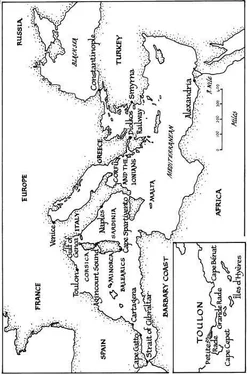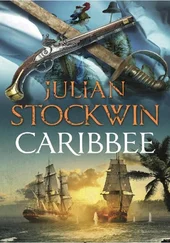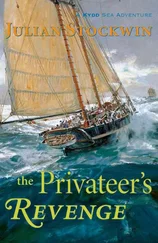Julian Stockwin - Victory
Здесь есть возможность читать онлайн «Julian Stockwin - Victory» весь текст электронной книги совершенно бесплатно (целиком полную версию без сокращений). В некоторых случаях можно слушать аудио, скачать через торрент в формате fb2 и присутствует краткое содержание. Жанр: Старинная литература, на английском языке. Описание произведения, (предисловие) а так же отзывы посетителей доступны на портале библиотеки ЛибКат.
- Название:Victory
- Автор:
- Жанр:
- Год:неизвестен
- ISBN:нет данных
- Рейтинг книги:4 / 5. Голосов: 1
-
Избранное:Добавить в избранное
- Отзывы:
-
Ваша оценка:
- 80
- 1
- 2
- 3
- 4
- 5
Victory: краткое содержание, описание и аннотация
Предлагаем к чтению аннотацию, описание, краткое содержание или предисловие (зависит от того, что написал сам автор книги «Victory»). Если вы не нашли необходимую информацию о книге — напишите в комментариях, мы постараемся отыскать её.
Victory — читать онлайн бесплатно полную книгу (весь текст) целиком
Ниже представлен текст книги, разбитый по страницам. Система сохранения места последней прочитанной страницы, позволяет с удобством читать онлайн бесплатно книгу «Victory», без необходимости каждый раз заново искать на чём Вы остановились. Поставьте закладку, и сможете в любой момент перейти на страницу, на которой закончили чтение.
Интервал:
Закладка:
Without stunsails and other ornaments aloft, there was no point in chasing speed, which left manoeuvring, tacking and veering – through the wind’s eye or the long way around. ‘We wear first,’ Kydd decided.
In fairness to a new company on a strange ship they wore slowly, carefully – but there was no need for concern: L’Aurore obeyed demurely and sweetly took up on her new tack, quickly settling on her course. Again, but this time in earnest. And again. Without fuss, she went round and lay back on her old track as if nothing had happened.
So far, so good: now to the complex manoeuvre of tacking about. The breeze was falling to a pleasant ruffling. Kydd knew the signs: there would be a relative calm soon and his exercising would have to come to an end.
‘Hands to stations for staying,’ he ordered. There would be quick work on the braces and sheets but they were ready. This time, however, L’Aurore seemed to object to being hurried: her slim length to breadth required a more measured pacing, a precision of manoeuvre that would be a hard thing to accomplish in the throes of battle.
They went through stays one more time but Kydd had her measure now, and with it came a growing respect. This was a proud lady who had all the graces and expected to be treated with consideration, but there was little to forgive.
The wind faded into a fluky breeze and their speed began to fall away. Yet L’Aurore stood on, even with her sails hanging loosely and flapping occasionally as if in lady-like impatience. She ghosted along at a walking pace and Kydd’s satisfaction with his new ship swelled. This was a most valuable trait – no prey would escape in a calm with this fine-lined frigate.
So what did he have? A fast ship, that was certain. How fast would have to await the right conditions. Fine-lined but delicate, rather lighter in her scantlings than he would have liked, but if she was to be a flyer it had to be paid for. This would include staying with twelve-pounders for there was no arguing with metacentres that said too much weight too high was dangerous.
L’Aurore was a comfortable ship. His appointments were first-rate and from what he had seen of the gunroom his officers would be satisfied with their cabins. The seamen had good berths but he would suspend judgement on that until after the first real blow, with seas coming over the fo’c’sle.
All in all, then, a fine ship – and one to love, he admitted to himself in surprise. Behind his critical assessments lay a growing affection for her: that willing responding to his wishes, the old-fashioned charm of her fitments that gave her a warmth of appearance so different from the war-like demeanour of modern British frigates.
They were going to get along.
Chapter 6
‘Sir, I do welcome you to the Admiralty,’ the first lord said to Mr Pitt, the prime minister. Noting the features ravaged by cares and the stooped carriage of the man who had given the flower of his life in the service of his country, he added gently, ‘Should you require refreshment at this hour . . . ?’
It was late at night and they had the board room to themselves. Pitt ignored the table and sat wearily in one of the two leather armchairs, the few candles casting harsh shadows on his face. ‘Henry, I have an audience with the King in the morning,’ he muttered to his old friend. ‘Do see if you can find me something of cheer to lay before him.’
Melville drew up the other chair and pondered. ‘The people are in good heart, no dread or uncertainty there.’
‘It’s ignorance of the situation only.’
‘John Bull is no fool. He can see what stands against us. No, they’ve placed their trust in the Hero of the Nile, that while Nelson rules the waves no Frenchman dare venture an invasion of these islands. It’s pathetic and noble at the same time, I’m persuaded, but then it means we need have no fear of popular resentments, you can tell him.’
Pitt sighed and sipped his port reflectively. ‘That’s of no account. His Majesty abhors the man since in defiance of society he’s taken up with that Hamilton woman.’ He pulled himself up in the chair. ‘Henry, imagine me one of your northern ironmasters come to Town to discover why we fuss so over the Navy. Pray rehearse for me just what it is that’s facing us as of tonight and I’ll be the judge of what shall be said later to the King.’
‘Yes. Well – since you ask, it could hardly be worse. The continent of Europe is in arms against us and its resources plundered by Bonaparte to one end – the destruction of our nation. He has an encampment of a hundred and seventy-five thousand veterans within twenty miles of the English shore, some three thousand invasion craft completed and the whole waiting for his word to be launched at our vitals.’
‘I know all of that – I’m a colonel of militia at Deal, I’ll remind you, Henry!’
‘Er, yes. As it’s known, he needs but hours – a day or so at most in control of the Channel – and we’re done. Therefore whatever it takes, they must be prevented from setting forth.’
‘There are those who point to Keith and the Downs Squadron.’
‘As they are in daily battle outside Boulogne. This is true, but it’s not why Napoleon refrains from a sally. The real reason is that if his mighty invasion flotilla sails, it stands to be crushed by any of our ships-of-the-line lying in wait, and thus he must protect them with larger numbers of his own sail-of-the-line. Therefore his entire strategics are devoted to the one object: to crowd the Channel with his battleships to ensure safe passage for the invasion fleet.’
‘And all the world asks this: why do we not make concentration of our own squadrons in the Channel? They’d never stand against us! Why are our battle-fleets sent thousands of miles overseas while there’s such deadly peril in home waters?’
‘Because, sir, we would not necessarily win in such a contest.’
‘Not win?’ Pitt snapped.
‘Not necessarily, I did say. Napoleon, since the Dons’ recent declaration of war, and with the Dutch Navy in possession, has now an immense number of sail-of-the-line at his disposing, a damn sight more than we. Should these all at the one time be brought together in the Channel . . .’
‘Well?’
‘Our own strategics are very simple: to stop this happening. And to this end we have a tried and trusty weapon. Blockade. At Brest they have Ganteaume and his armada, Missiessy at Rochefort, Villeneuve at Toulon. The Spanish under Gravina at Ferrol, Vigo and Cadiz, fine deepwater ports. And outside every one of these lies a British battle squadron sternly denying them the open sea.
‘The effect of this is decisive: if any enemy leaves port that part will inevitably be defeated before it has time to join with the others, of that you can be assured. So while they lie apart and divided we are safe. Conversely, if they manage to break out and combine we will be overwhelmed. Therefore the heroes of the hour are those ships and men that are now standing before the enemy in all weathers to this end.’
Pitt looked up sombrely. ‘Incidentally, who have you on this duty at the moment?’
‘Cornwallis at Brest with seventeen of-the-line, Orde off Cadiz with five, Calder at Ferrol with eight and Nelson before Toulon with twelve. Not so many to set against them, I will agree.’
‘So if they do get out, what then?’
‘The chiefest danger is Toulon, which is why we have our most feared admiral there. And it’s there as well that the French have their commander-in-chief. If he can contrive to break free he sails west, adding battleships from Cartagena and forcing the strait of Gibraltar. Overwhelming Orde, he effects a conjunction with the Spanish in Cadiz. He then sails north, releasing others from Ferrol and Vigo and reaching Brest where Ganteaume comes out. The Combined Fleet is then in overwhelming force at the mouth of the Channel – and our worst nightmare is upon us.’
Читать дальшеИнтервал:
Закладка:
Похожие книги на «Victory»
Представляем Вашему вниманию похожие книги на «Victory» списком для выбора. Мы отобрали схожую по названию и смыслу литературу в надежде предоставить читателям больше вариантов отыскать новые, интересные, ещё непрочитанные произведения.
Обсуждение, отзывы о книге «Victory» и просто собственные мнения читателей. Оставьте ваши комментарии, напишите, что Вы думаете о произведении, его смысле или главных героях. Укажите что конкретно понравилось, а что нет, и почему Вы так считаете.









